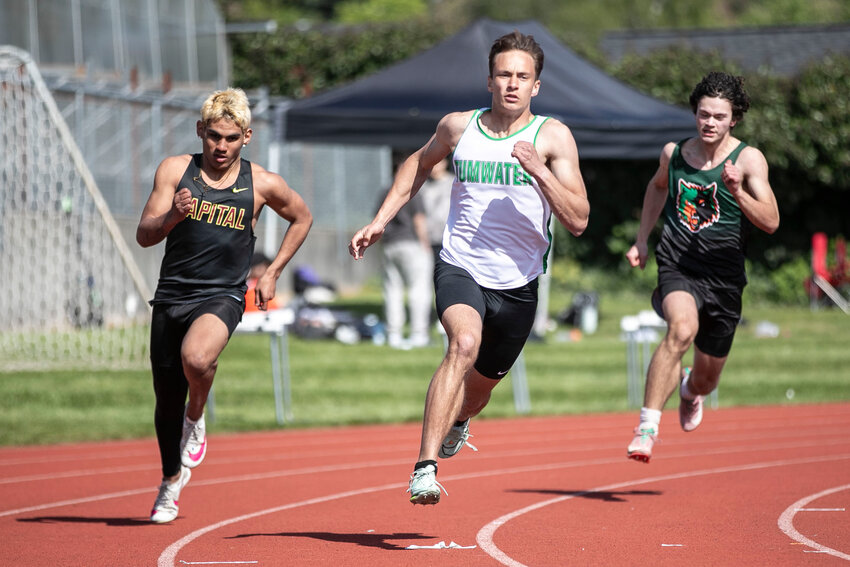When Beyoncé collected the Album of the Year and Best Country Album statues for Cowboy Carter, they were actually Justus West’s second and third Grammy wins. John Legend’s Bigger Love, on which West co-produced the song Always, took the Best R&B Album gong in 2021. Still, the guitarist remains humble.
“I don’t feel any different, to be honest,” he says. “I was even telling my managers, ‘Look, until I walk that stage and I give the speech, I’m so grateful to be a part of it – but it’s not mine.’”Playing on Beyoncé’s 16 Carriages is just one sign that West’s star is rising; another highlight on a resumé that also includes Thundercat, Ariana Grande, Alicia Keys and Snoop Dogg.

He was recently praised by John Mayer, who called West one of his favorite guitarists.You spoke on Threads about how being paid on time can matter more than awards. What are your feelings about Grammy wins?“I’ve never really been much of an accolade person.
I don’t even watch the award shows. I create because I feel like that’s my purpose on Earth. If I had to get a nine-to-five so that I could create, I would do that.
I’ve never been addicted to the success of the music industry, but I’m very grateful that I can do music for a living.“I can’t say whether any Grammys I’ve been nominated for has to do with payment. I will say it is common in the music industry to receive an accolade for work that you haven’t been compensated for.
Many creatives – especially who are younger and newer to the industry – don’t know how to deal with that.“It’s a pretty easily mendable problem. When I send in an invoice, it takes months before you even get to payment.
It’s months of negotiation, which is fine; lawyers are going back and forth. Once it’s confirmed what the rate is, it’s weird to see net 30, net 60, net 90 on payments [referring to the industry practice of paying invoices after 30, 60, or 90 days].”(Image credit: Press)What’s your advice for musicians in that situation?“My mindset is always: I make music for free, but when a person wants to monetize it, then we have to have a business conversation.
You will always find your tribe quicker if you stand on your boundaries. Be realistic setting rates.“I used a mixture of asking around, looking at what my own skills are, asking people what they feel rates for me would be.
I used all that information to create a fair rate. But definitely stand up for what you’re worth. You let people steal from you once, twice, three times, they’ll always do it.
”A lot of sessions are done remotely now, but you recorded 16 Carriages in a studio. Is that still common?“It is still very common. The upper echelon of the industry, most times, they're not going to be comfortable with sending files out.
So that’ll always be an in-person thing. Most artists don’t even let their hard drives leave the studio.“What is changing, though, are the types of setups, the rigs, how you’re recording.
I do wonder if it’s possible to become wealthy off session work today, like Marcus Miller, Nathan East or Steve Lukather.“For independent artists and mid-level artists, there’s still a lot of desire for at-home session work. Making a living is not just the big deals and the hit songs.
Even a lot of big names do intermittent work, whether it’s producing for artists you never heard of, or background vocals.“People do a lot of other stuff to make a living. So I always encourage people to get good gear at home.
Have a nice plugin library, have a few amps, good mics and preamps, and practice so that you’re perfectly prepared when somebody needs to email you something.”(Image credit: Press)Are session guitarists expected to supply the gear and get the right tones, or do producers have the plugins already?“There are great guitar plugins out there, Neural DSP and Safari Pedals, really stellar stuff. Producers don’t know about them! It's still on the player to have a plethora of tones and offerings.
Some producers will have an amp there, like, ‘This is kind of what I'm looking for,’ but a lot of producers are just not that granular.“I don’t think that’s a negative thing: the producer’s job is to look over the entire song and the whole album. So it’s very important to have an array of plugins, amps and even mics.
Here in LA, a lot of big studios don’t have an amp locker or a mic locker anymore.”The Beyoncé effect is real..
. when I go places in LA, if my reputation precedes me, there’s a social energy I’m not exactly used toYou said recording is changing. Are you using digital modelers?“I only use that stuff when I’m absolutely forced to.
I’m still using an amp. I’m into being loud and having fun. For people who are touring, Fractals and Kempers are very helpful – you can get tones that you would normally need to travel with seven amps to do.
But I still use an amp any time I possibly can.“I used the Neural DSP Plini plugin to play on 16 Carriages. Could I even afford a real-life amp that sounds like that modeler? I don’t think so! Living in LA makes this tough because you’re paying all this money for rent, and your place is not that big.
I don’t have space for a bunch of amps.”Has playing on Cowboy Carter changed your life?“Being a part of that song definitely did shift the conversation. The Beyoncé effect is, in fact, real.
I actually got a lot of traffic just from people checking the liner notes. Now when I go places in LA, if my reputation precedes me, there’s a social energy that I’m not exactly used to!”You said you’re not bothered about awards. How about praise from your peers? What has John Mayer’s support meant to you?“It’s freaking stellar! Sometimes it’s like, ‘Is this real?’ Looking at my Instagram notifications, and it’s, ‘John Mayer tagged you in a photo.
..’ I met John in 2018 when I playing for Mac Miller – John had played on Mac songs.
He came to some of our Hotel Café shows, right before Mac passed away. It was a very impactful time in my life.A post shared by Sango Studios (@sangostudios)A photo posted by on “I grew up a huge John Mayer fan.
He was not only an inspiration as a guitar player, but as a songwriter. A lot of my songwriting is inspired by his lyricism.”You’ve also talked about the importance of secrecy when you’re working on big projects.
Are you doing anything right now that you can’t tell us about?“I’m working on one project right now that I definitely cannot talk about, but it’s definitely very exciting. And if it sticks – if it sticks – it will be a huge turning point in my career as a music producer.”(Image credit: Press)What’s next for you?“I just released my EP called Take Care.
As an artist, I’m committed to experimentation, so it was me trying some things out, seeing how they perform upon release. I produced and wrote pretty much the entire project by myself. There’s guitar solos and cool tones and lots of sad lyrics.
“I also started a Discord community that’s full of musicians, artists, producers and visual creatives, called The Justus League. I drop music ideas in there daily. People use them to make their own songs.
We’re going to work on a project together, so that’s really fun.“I have a lot of music in the chamber, and I now feel like there’s no use in being so precious with it, so I’m just going to put it out in the world. Take Care is the beginning of that whole journey.
”Take Care is out now..
Entertainment

“The Beyoncé effect is, in fact, real. I got a lot of traffic just from people checking the liner notes”: With three Grammy wins and plaudits from John Mayer, Justus West is one of modern session guitar’s MVPs – but it hasn’t been an easy ride

One of John Mayer’s favorite guitarists reveals the challenges of making a living from music, what modern studio sessions are like and why he uses plugins even though he prefers real amps















